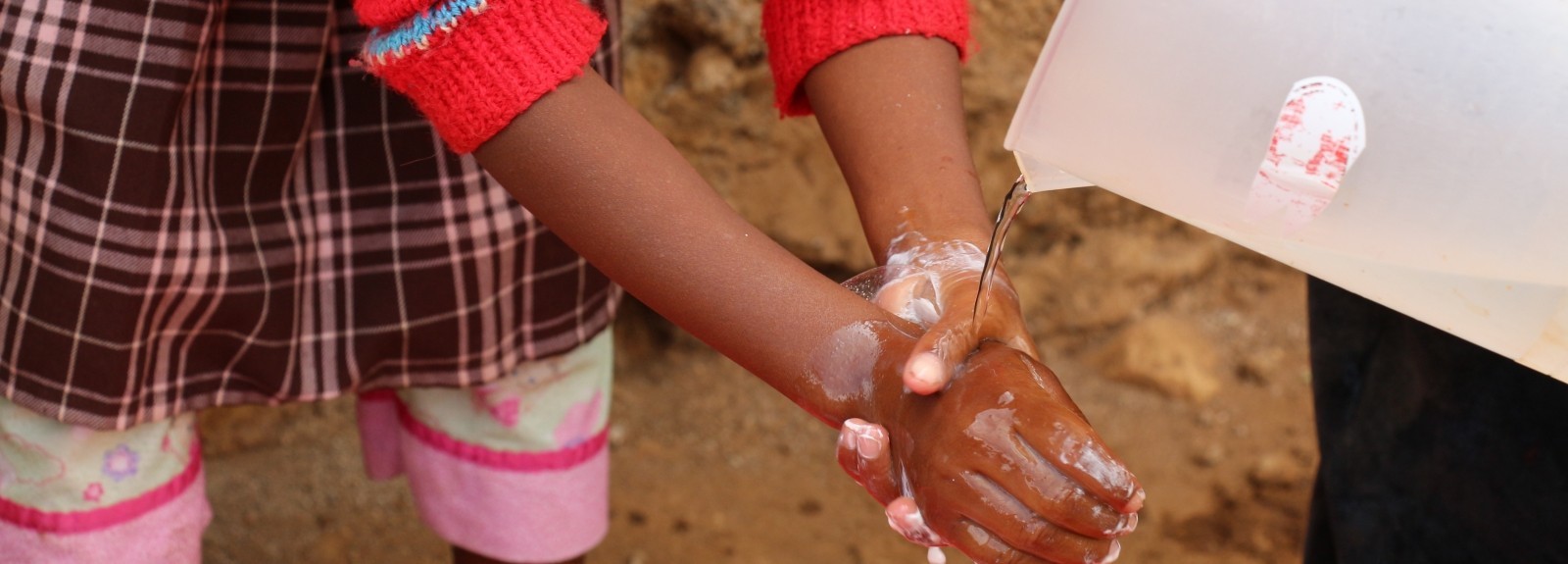Your support of Lutheran World Relief contributes to the larger work of creating sustainable solutions to poverty around the world. This blog series on the Sustainable Development Goals (SDGs) seeks to answer two questions: What are the sustainable development goals? And how does your support of Lutheran World Relief contribute to them?
What are the Global Goals?
In September 2015, 193 governments agreed upon the Sustainable Development Goals, an ambitious agenda also known as the Global Goals. The Global Goals are essentially a 17-point plan to end poverty, combat climate change and fight injustice and inequality.
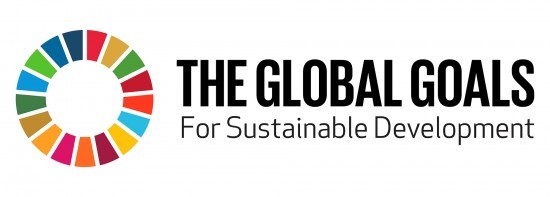
Read more about the background of the Global Goals»
With so many big, bold, aspirational goals, you may wonder: where do we start in actually carrying out this work? The good news is we already have. With your support, LWR is already taking on the work in many of the Global Goals.
Good Health & Well-Being
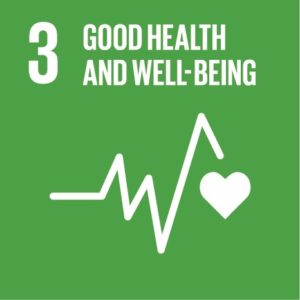
Goal #3: Good Health and Well-Being not only targets the improvement in health in terms of disease, but also takes into consideration child and adolescent pregnancy, maternal mortality, mental health, and others. This goal seeks to:
- achieve universal health coverage,
- reduce the global maternal mortality ratio to less than 70 per 100,000 live births,
- promote mental health and well-being through treatment, ending the epidemics of
- AIDS,
- tuberculosis,
- malaria,
- combat hepatitis,
- water-borne diseases and
- other communicable diseases,
(To mention a few.)
Health, well-being and human life are global issues that affect everyone no matter where they find themselves. The United Nations states that while certain statistics have declined globally since 2000 (such as the number of maternal deaths, adolescent childbearing and unintended marriages, spread of infectious diseases such as tuberculosis, malaria and HIV), the decline was disproportionate in regions such as Sub-Saharan Africa. The global decline in health risks and diseases has not been equal in all regions. In other words, there is much more work to do in order to promote good health and well-being globally, especially by 2030.
So how does LWR play a role in achieving this goal? Let’s look at how LWR is already doing the work of promoting good health and well-being in Asia, Latin America and Africa.
How Your Support Helps
From school kits to the agricultural programs that LWR supports worldwide, your support helps to promote good health and well-being for people of all ages by tackling the root causes and environmental factors involved with health crises. LWR takes an integrated approach to many of our projects in Africa, Asia and Latin America, to break the cycle of poverty and hardship in these regions and it can only be accomplished with your support.
Here are just a few examples of how that support has changed lives.
The Health Effects of Educating Girls
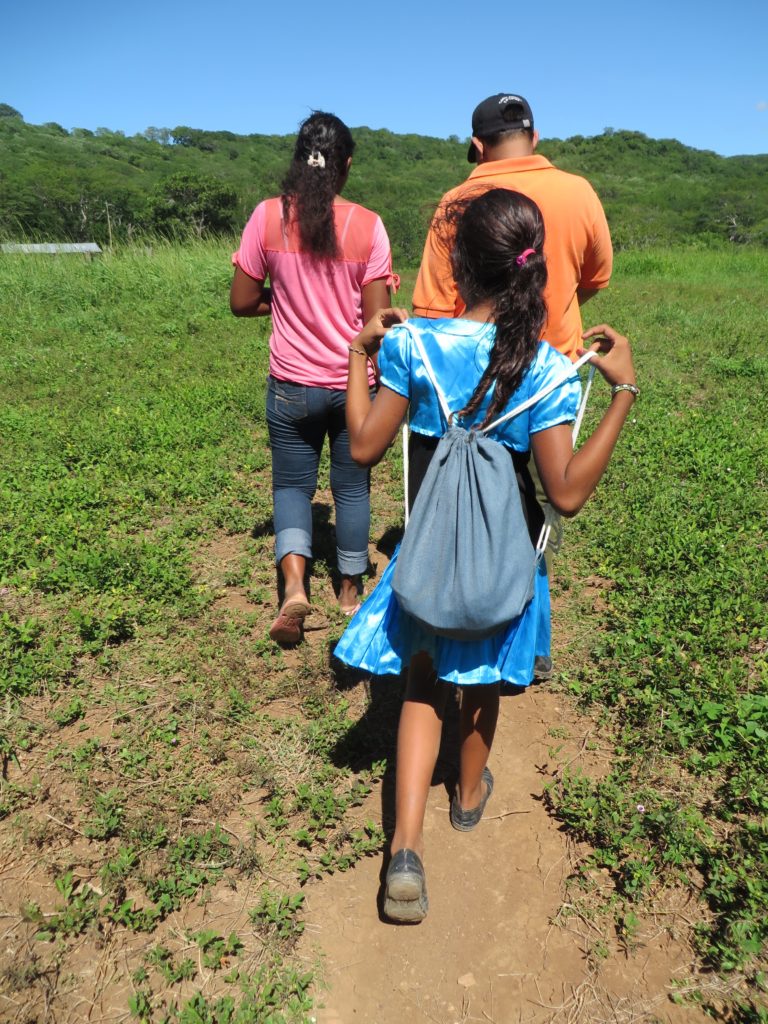
A Nicaraguan girl returning from a special school program for U.S. FRB visitors, wearing an LWR school kit bag. Also pictured: her mother Brenda and Maryan head agronomist and program coordinator for local partner CIEETS (Photo credit: Karon Speckman for LWR)
In the rural areas of Mateare Caranzo in Nicaragua, many children cannot attend school because of the lack of school supplies. With the school kits that donors contribute, and LWR distributes with local partners, children like the girl pictured above have the chance to have a good education and a better life. LWR in-country staff and local partners, such as Centro Intereclesial de Estudios Teológicos y Sociales (CIIETS), share these school kits in communities associated with our long-term agriculture projects, projects that aim to improve the agricultural process (including the post-harvest processing and storage) and protect the communities and the environment in which they live. Education for girls can lead to some of the sub-goals mentioned in Goal #3: the prevention of unintended pregnancies, reduced adolescent childbearing and fewer child marriages. In addition, LWR works with CIEETS to increase access to water and provide basic sanitation services to the communities of San Pablo, Yucul, and Hornos.
Water, Sanitation and Hygiene after Natural Disasters
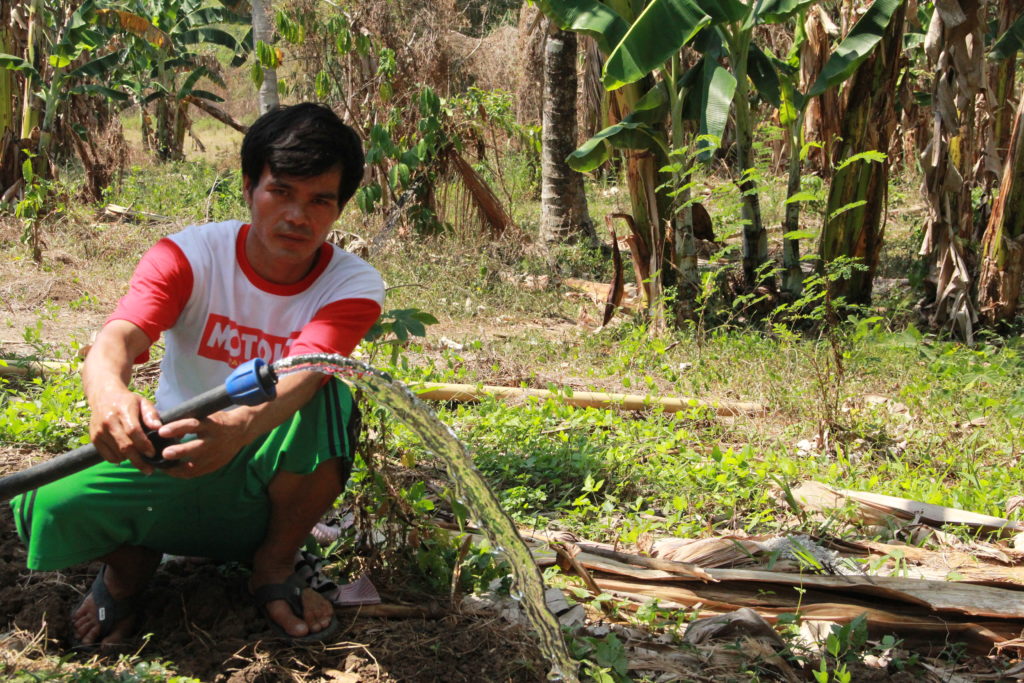
Mr. Joni Datuwata, a community leader showing the water flow from the water system a community of internally displaced persons in Maguindanao, Philippines installed with LWR’s support (Photo credit: Rey Gazo for LWR)
Super Typhoon Haiyan, which hit the Philippines in 2013, left over a million houses damaged and displaced or made homeless about 4 million people. In the aftermath of Haiyan, Lutheran World Relief responded with a water, sanitation and hygiene (WASH) project. Mr. Joni Datuwata, in the picture above, and his family were some of the displaced persons who were able to return home and are part of the livelihoods recovery assistance project. The aim of this project is to recover the livelihoods of the participants through the water system they have installed. This project was one of many responses supported by LWR donors. Others included latrine construction, cash-for-work programs, and the distribution of Mission Quilts, Baby Care Kits, and Personal Care Kits.
Malaria Prevention and Control
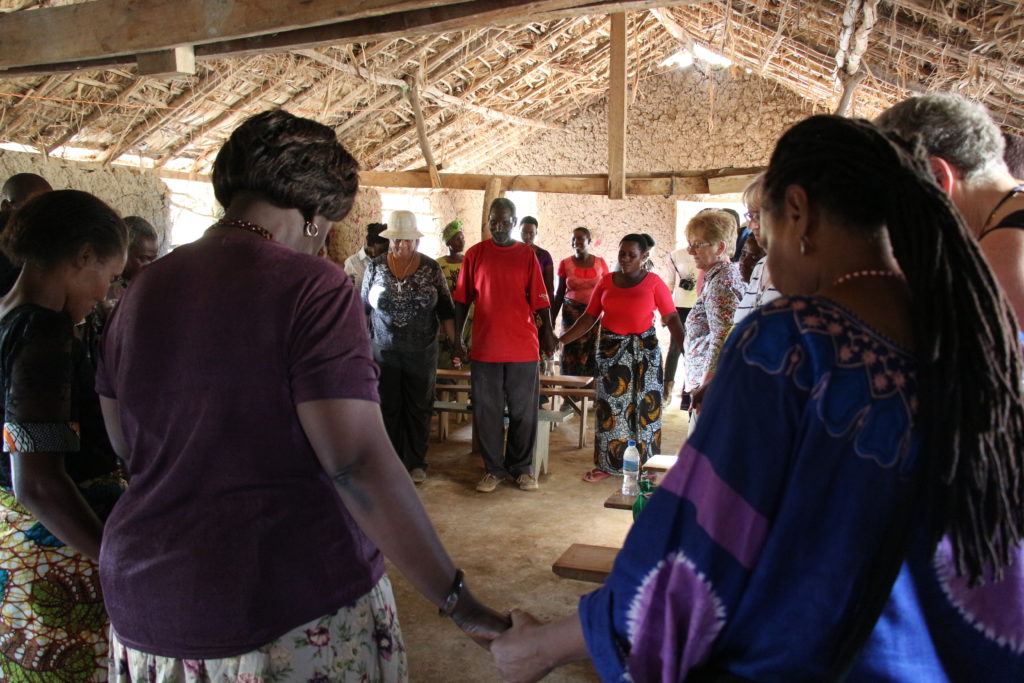
A closing prayer with a Women of the ELCA delegation visiting an onion-growing livelihoods project in Pare, Tanzania in November 2015 (Photo credit: Brenda Kimaro for LWR)
Malaria is a big problem in tropical regions and in rural communities in Tanzania. Through a six-year collaboration with the Evangelical Lutheran Church in Tanzania (ELCT), LWR worked with churches in the communities of Pare, Morogoro and Iringa to reduce malaria and increase community investment in malaria control. The picture above shows the end of a visit to a community project that sprung out of the malaria project with the ELCT. It is an onion growing project that aims to increase the incomes of the people in the communities in order to continue protecting themselves from malaria by buying mosquito nets and other anti-malarial treatments.
Your support is addressing the challenges of good health and well-being in various countries around the world.


